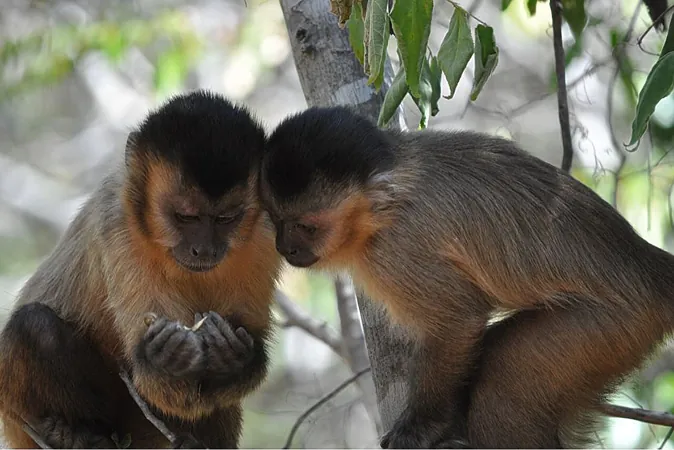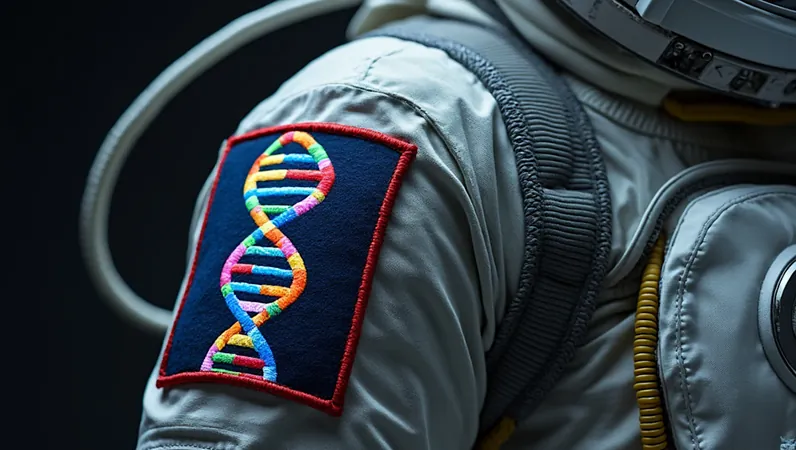
Groundbreaking Study Reveals Secret to How Monkeys Master Tools Through Social Bonds
2024-11-18
Author: Jacques
Introduction
A fascinating new study sheds light on the intricate world of problem-solving among wild monkeys, with significant implications for understanding social dynamics and learning. Conducted by researchers from Durham University's Department of Anthropology, this research focused on two groups of bearded capuchin monkeys residing in Brazil's Serra da Capivara National Park.
The Experiment
The team designed an innovative experiment involving a large box containing food, which the monkeys could retrieve by either lifting a door or pulling a knob. Observations were made to determine which monkeys successfully accessed the food and how their newly acquired skills filtered through the rest of their social group.
Social Tolerance and Learning
Central to the study was the role of social tolerance—how individuals within the group interact and allow each other close enough to share resources and information. The researchers uncovered that monkeys learned primarily through direct observation, and those with higher social tolerance, such as grooming partners, were significantly more likely to share their problem-solving strategies.
Observational Learning
Interestingly, the findings revealed that naïve monkeys were particularly inclined to observe successful males when navigating the puzzle box. This preference highlights a fascinating aspect of social learning, suggesting that status and success influence which individuals are emulated.
Implications of the Study
Professor Rachel Kendal, co-supervisor of the study, emphasized the implications of this research for our understanding of cultural transmission among primates. "Bearded capuchins boast the most extensive 'toolkit' of any monkey species," she stated. "This capability is likely a result of social learning, allowing skills to be passed from generation to generation."
Conclusion
The researchers noted that social tolerance significantly affected how quickly and effectively new skills spread within the groups. They discovered that if a high-status monkey with knowledge of the puzzle box was not approachable, or if they tended to avoid close interactions with others, their skills did not readily disseminate throughout the group.
This pivotal study not only underscores the importance of social bonds in cognitive learning processes but also provides compelling insights into the evolutionary mechanisms underlying cultural behaviors in primates, including humans. With the findings published in the prestigious journal *Proceedings of the National Academy of Sciences*, this research marks a significant contribution to the fields of anthropology and psychology.
As we continue to explore the depths of animal cognition and social behavior, this study prompts fresh curiosity—could understanding monkey social dynamics unlock secrets to our own cultural evolution?









 Brasil (PT)
Brasil (PT)
 Canada (EN)
Canada (EN)
 Chile (ES)
Chile (ES)
 España (ES)
España (ES)
 France (FR)
France (FR)
 Hong Kong (EN)
Hong Kong (EN)
 Italia (IT)
Italia (IT)
 日本 (JA)
日本 (JA)
 Magyarország (HU)
Magyarország (HU)
 Norge (NO)
Norge (NO)
 Polska (PL)
Polska (PL)
 Schweiz (DE)
Schweiz (DE)
 Singapore (EN)
Singapore (EN)
 Sverige (SV)
Sverige (SV)
 Suomi (FI)
Suomi (FI)
 Türkiye (TR)
Türkiye (TR)